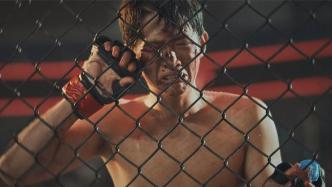
Note: This article contains spoilers
For nearly six years, Wang Baoqiang devoted his energy to writing, directing and acting in the new film "In the Octagonal Cage". "In the Octagonal Cage" is also Wang Baoqiang's highly acclaimed "Hello! "Mr. Tree" returns to realistic themes. Coupled with the fact that the movie was adapted from the fighting orphan incident, the film crew also confidently launched multiple rounds of screenings before the release, and the movie received a lot of attention.
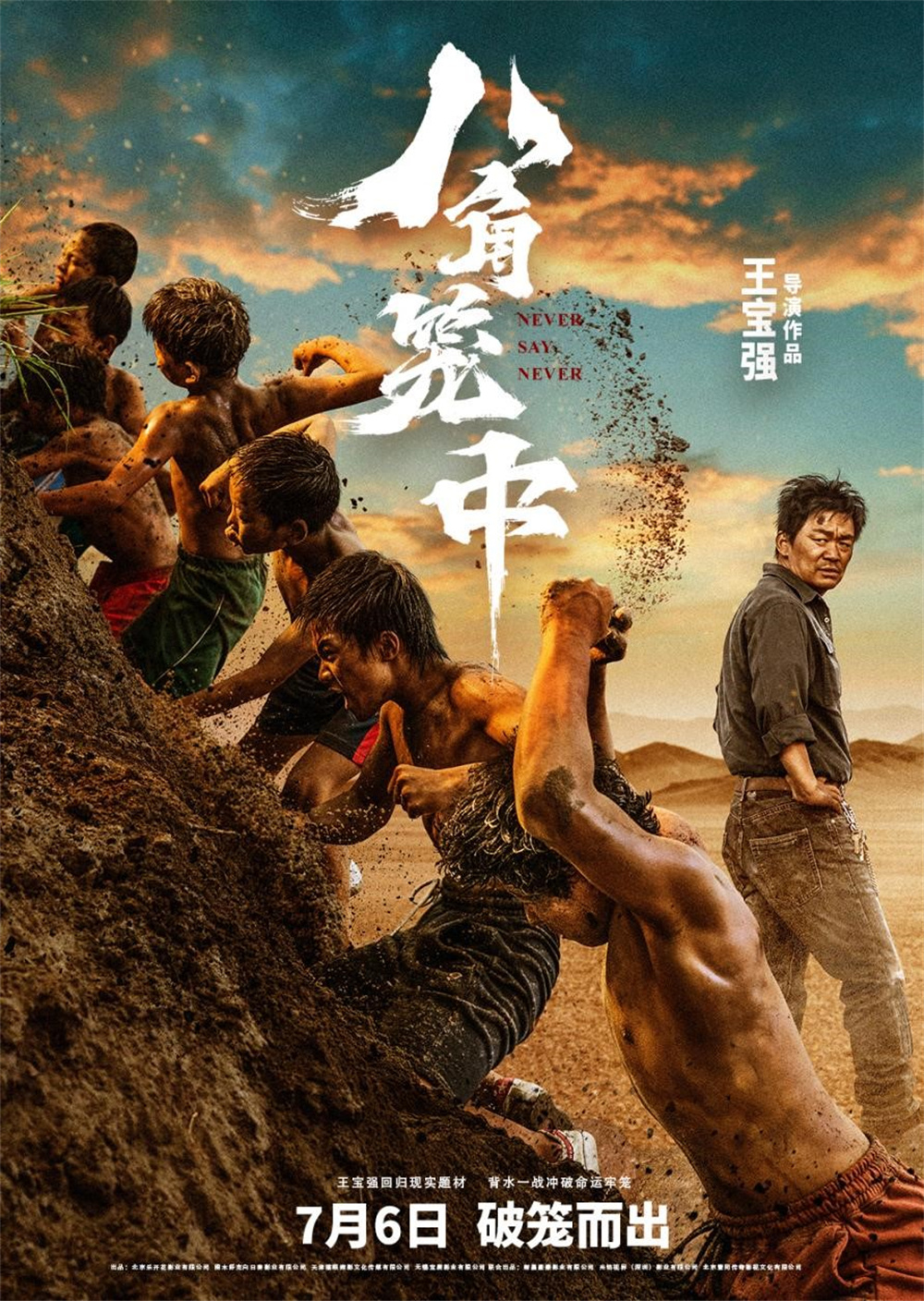
"In the Octagon" poster
The protagonist Xiang Tenghui (played by Wang Baoqiang) used to be a fighting champion, but was imprisoned for a time. After he was released from prison, Xiang Tenghui put down his fighting skills and became the boss of the battlefield. By accident, Xiang Tenghui "tied" a group of unattended children from the mountains to form a fighting club. His original intention was "acting", but he did the fake show for real. He felt compassion for the children, Continue to take the children for fighting training, hoping to make a living by fighting.
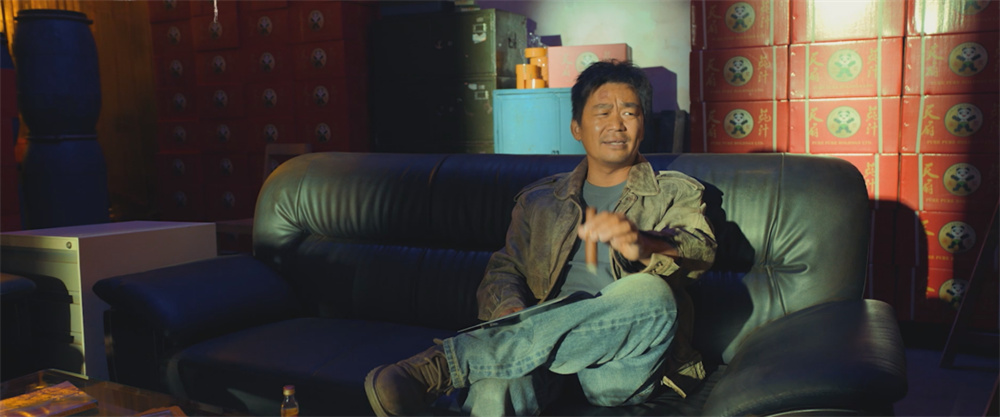
Xiang Tenghui (played by Wang Baoqiang)
More than ten years have passed, and the fighting boys gradually saw the dawn of the future, and more and more children came to the club, but at this moment, the fighting videos of the boys in the past went viral on the Internet, and Xiang Tenghui was arrested It is believed that the orphans are used to fight for profit, and the fighting club is forced to disband under the accusation of others... But, do the "rescued" children really have a better way out?
Obviously, "In the Octagonal Cage" refers not only to the arena dedicated to fighting, but also refers to the real situation that traps children. These children in the mountains come from extremely poor places. Most of them have no parents and have nothing at home. It is a problem to have enough food and clothing, let alone education. Left unattended, they became "little hooligans" and made a living by robbery.
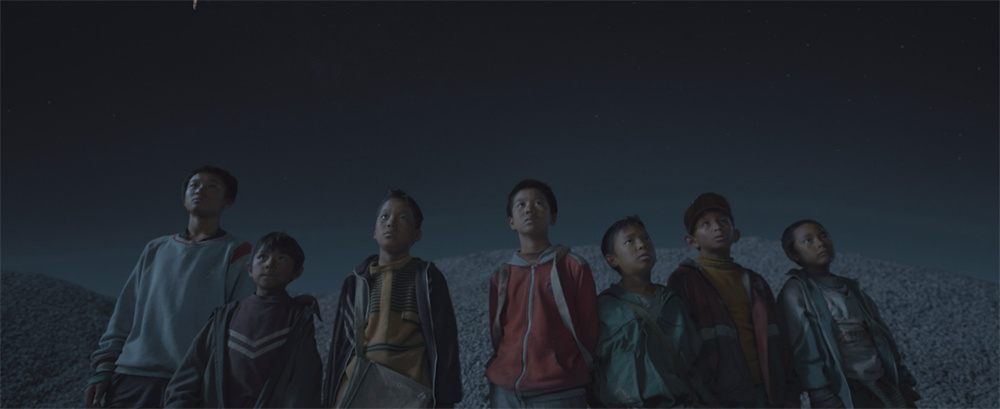
A child who no one cares about in the mountains
Some people practice sports is a hobby, but for many poor children, this is the only way out. It takes luck to be able to walk this path. People who don't know the suffering in the world can't help but say lightly from the perspective of a bystander: It's too cruel to let children practice martial arts. But for this group of children who can't even eat and can only sleep in the wild, it is a great happiness to be able to eat three meals and sleep in soft bedding. suffering.
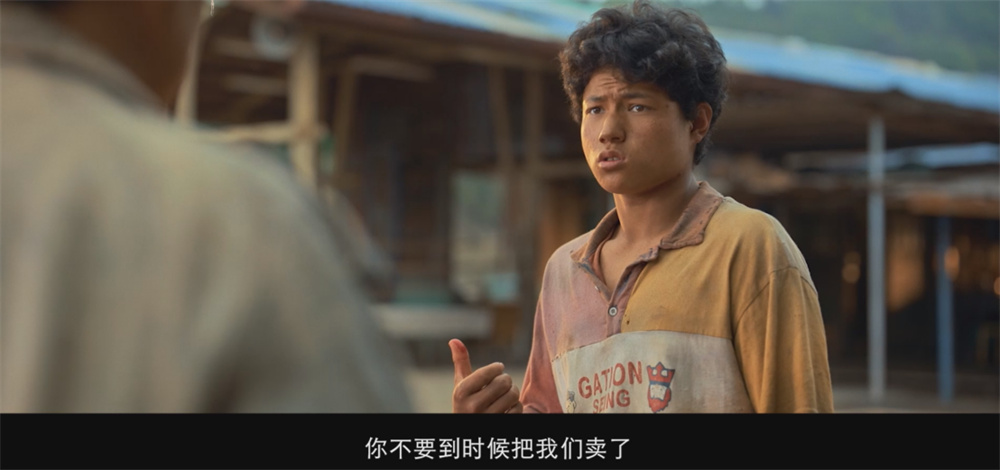
"Great! The sloppy in "Youth", played a very important role in the fighting boy sloppy in "The Octagonal Cage". The two works have the same purpose: children from poor families use sports as a way out.
But for Xiang Tenghui, taking children to practice fighting is a thankless task. A fighting club is formed, and there are so many kids who want to eat, where does the money come from? Fighting once brought him painful memories. Is it necessary for him to "wade in muddy water"?
The movie had to address Xiang Tenghui's motivation. On the line of Xiang Tenghui, the processing idea of "In the Octagonal Cage" is very close to "I'm Not the God of Medicine"-ordinary people gain a kind of "divine nature" by helping others. Of course, how effective it is is another matter.
There are two motives for Xiang Tenghui. One is that he sees horrific poverty, which triggers great compassion in his good nature. He went to the young Su Mu's house. There was almost nothing in the dilapidated earthen house. Su Mu's older sister was sick and lying on the bed. Slightly pulled down the quilt covering the lower body a few times... Such a subtle hint reflects the deepest pain in life, it traps, objectifies, and swallows people, and people can only live at the minimum like livestock . Xiang Tenghui originally wanted to send the boy back, but he finally decided to help the boy.
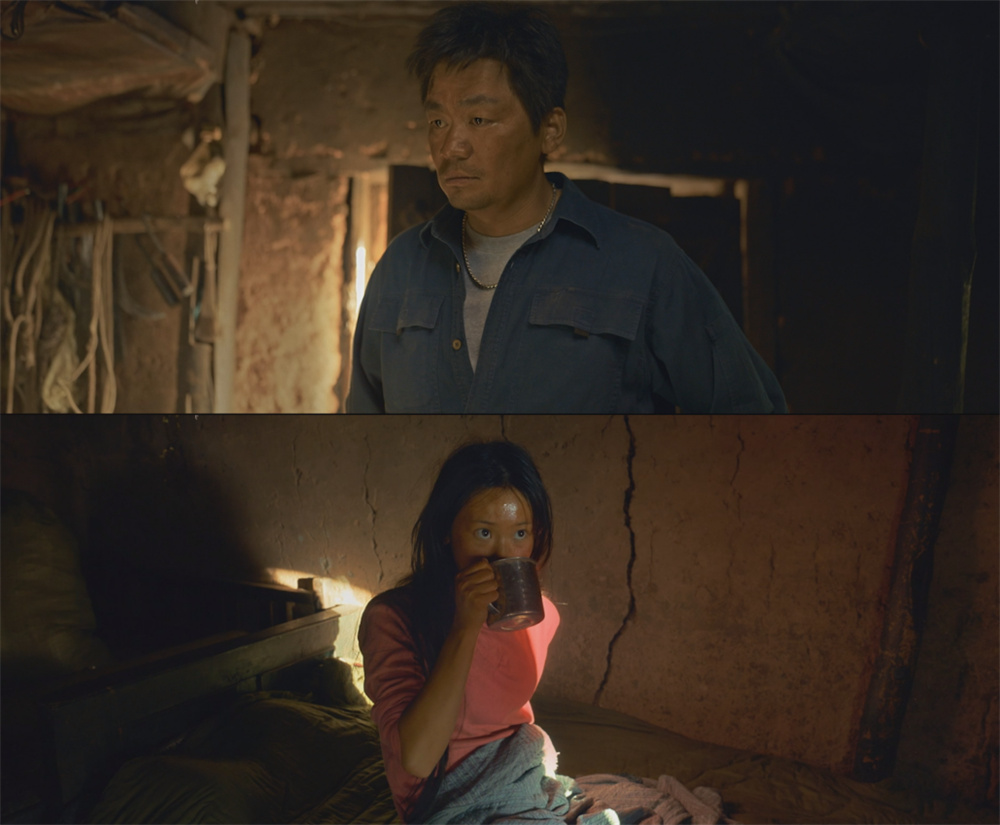
The poverty of others hurt Xiang Tenghui
On the other hand, the fighting boy reminded Xiang Tenghui of himself. He was once trapped in the octagonal cage of life. He managed to make a living by fighting, but fell off the cliff of life because of the "frame" of his coach. Xiang Tenghui seemed desperate and didn't want to touch wrestling again, but he was holding his breath in his heart all the time. He still longed to stand up again through fighting, smash all the injustices that bound the bottom people through fighting, and rush out of the octagonal cage. Therefore, he trained this group of fighting teenagers, which was not only their salvation, but also a self-salvation.
Xiang Tenghui's initial motivation was persuasive. But can this motivation be tested? In "I'm Not the God of Medicine", Cheng Yong was not the "God of Medicine" from the beginning, he had a complete transformation process of human nature from "human" to "god". It's a pity that "In the Octagonal Cage" didn't dig deep into the transformation of Xiang Tenghui's humanity, or in other words, Xiang Tenghui's "divinity" was established from the beginning, and then proceeded smoothly. Therefore, the film failed to answer several questions from the audience. For example, as the fighting school grows bigger, more and more children come to the fighting school. Food, lodging and training are included. To bear it, where is Xiang Tenghui's source of income, does it only rely on playing games? In the beginning, he only recruited children from the mountains, but now many utilitarian parents come here admiringly. Why did Xiang Tenghui accept everything without even thinking about it? Recalling the real case, the school of fighting has been questioned for using young fighters to "make profits". Doesn't Xiang Tenghui have selfishness?
In the ambiguous zone of morality, "In the Octagonal Cage" does not touch on what kind of human struggle Xiang Tenghui has. Ten years have passed, and Xiang Tenghui has completed the growth of "divinity", and he has become the "father" of all fighting teenagers. He is tolerant, fraternal, and selfless, and he works hard for the children's education without hesitating in debt. So many... The characters seem to be perfect, but in terms of three-dimensionality and depth of human nature, Xiang Tenghui is not as good as Cheng Yong in "I'm Not the God of Medicine".
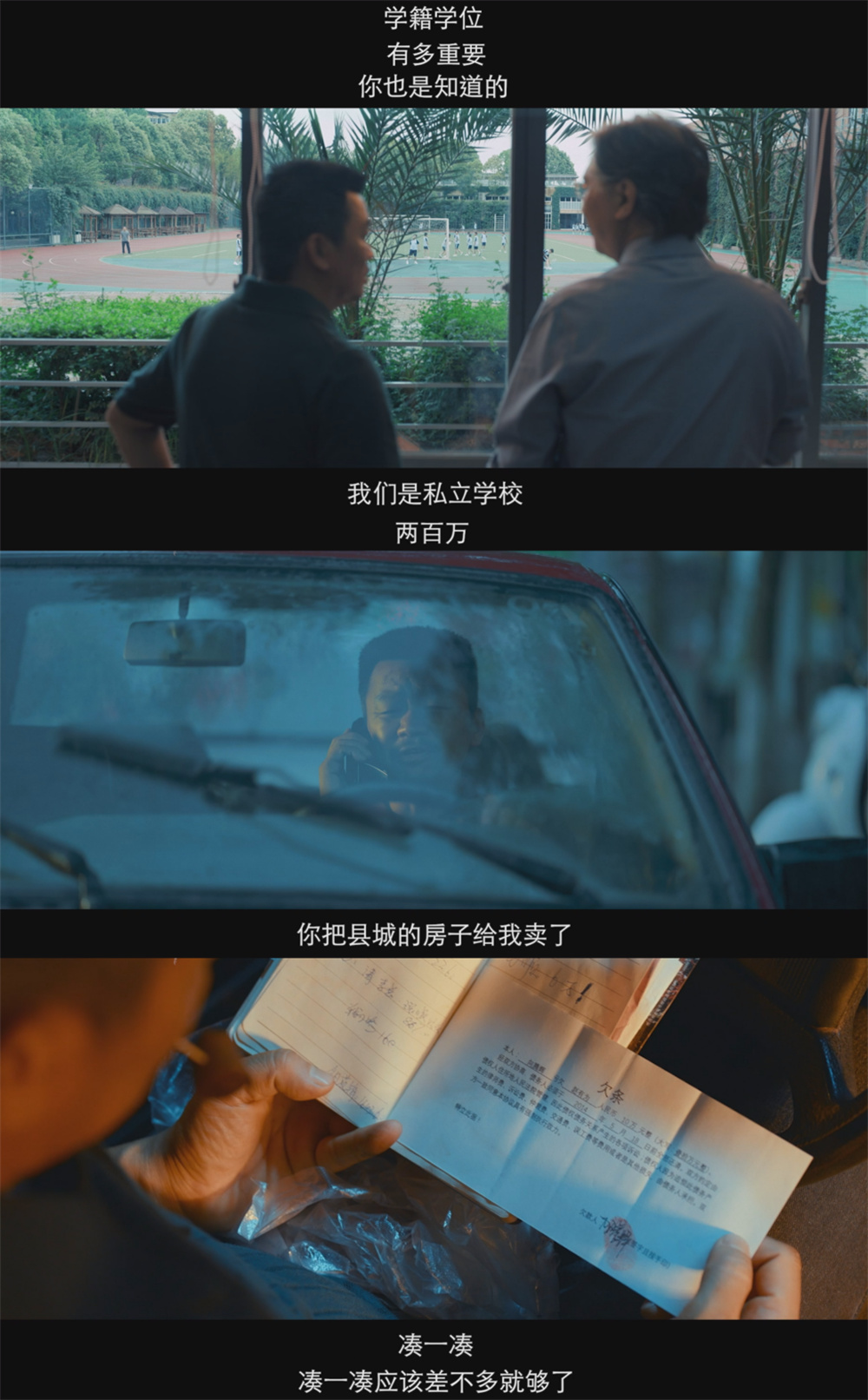
Why can Xiang Tenghui make such sacrifices for the children? The persuasion of the movie could be more sufficient.
In "I'm Not the God of Medicine", Cheng Yong's perspective is dominant. Although there are wonderful portraits of patients in the movie, the patients' demands are relatively unified-there is medicine that can cure the disease and they can live. In "The Octagonal Cage", Xiang Tenghui's fighting club can continue to operate, not only from Xiang Tenghui's perspective, but also from the perspective of fighting teenagers, that is, why are they willing to follow Xiang Tenghui? Why are they willing to be "deceived" even though Xiang Tenghui might "deceive" them? In particular, poverty has gravity. Sometimes it is like a swamp, which makes people completely lose the motivation to get rid of poverty, and is willing to sink forever. Do fighting boys not have such troubles? If so, how did Xiang Tenghui save them of?
The film's portrayal of the group of fighting teenagers is also simple, and there is almost no conflict between them and Xiang Tenghui-except when the fighting club has to be disbanded. And because Xiang Tenghui already possessed "divine nature", the young fighters did not have the trouble of being dragged down by the gravity of poverty. The reason for the disbandment of the club had to be attributed to external forces, such as the "Notre Dame disease" that the media and netizens did not distinguish between right and wrong. , For example, other people's insults, etc., are more or less facialized.
However, the existence of these deficiencies does not mean that "In the Octagonal Cage" is not worth watching. The special feature of this movie is that it involves fighting and also has some elements of sports movies, so many viewers compare it with "Let's Wrestle!" Dad" contact. But "In the Octagonal Cage" is not the kind of traditional inspirational sports movie. It does not follow the template of "little people get stuck-rise after a fight-overpower a strong opponent-achieve the final counterattack". There is not much training and training in the movie. In the game scene, there is not much passion and enthusiasm, and there is no so-called "counterattack".
On the contrary, "In the Octagon" as a sports film is anti-genre because it is "non-combustible". The lack of elements in the movie "burning" is not because the creators are incompetent, but the biggest opponent of the fighting boys. They have always been poor, almost solidified classes, and cannot be ignited.
There was a scene in the movie where the fighting teenager was in vain, and it was echoed with a line from the adult sloppy (played by Chen Yongsheng). "Have you ever played water float? No matter how far the stone floats, it will sink into the water in the end. This is my life."
In other words, fighting is the only way out for this group of teenagers, but there are many obstacles to get out of poverty, and this way out may be blocked at any time, and there may still be a crushing defeat if there is too much blood and tears mixed with class crossing. For example, the club was shut down and the children were sent back to Dashan. But even if the club was shut down, Xiang Tenghui arranged other clubs for adults Su Mu (played by Shi Pengyuan) and Ma Hu. What Xiang Tenghui didn't expect was that they were still repeating the same mistakes they had made in the past: Taking medicine was stepped on and broke his leg by other club members, and his career was almost completely ruined; he was sloppy and "returned to his old business", and was finally arrested and imprisoned for robbery.
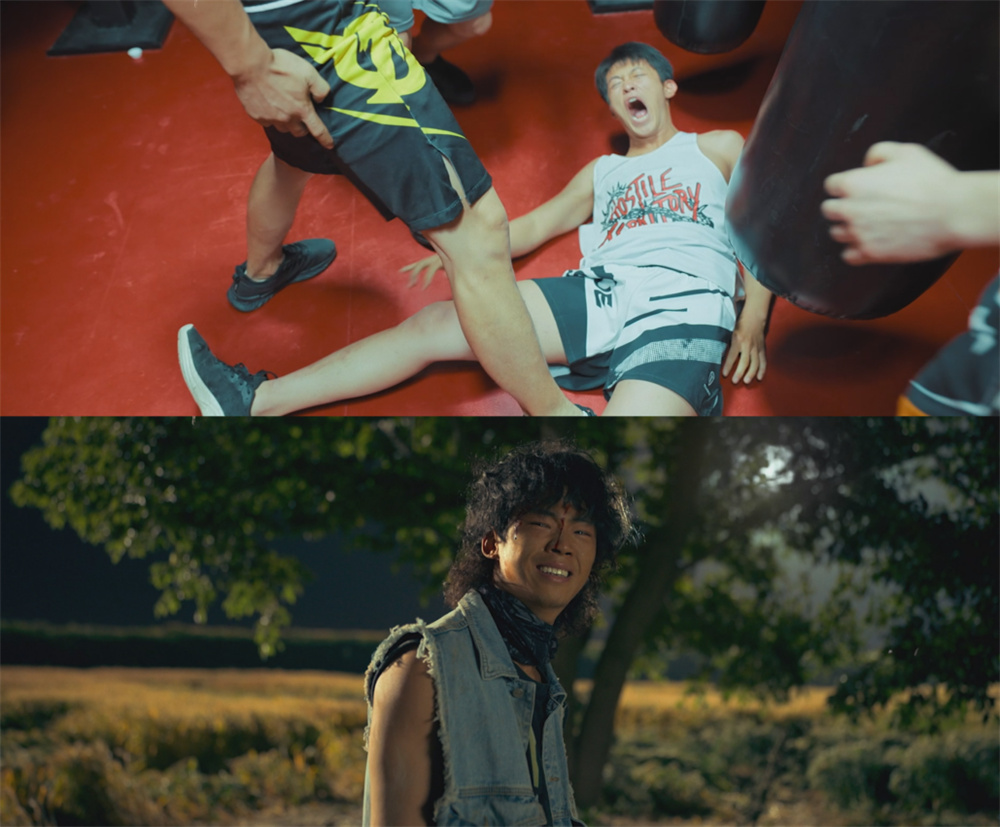
Su Mu and Sloppy were once beaten back to their original form by reality
This was a moment that broke Xiang Tenghui's heart, as well as the hearts of the audience - when Xiang Tenghui found Sloppy again, he found that Sloppy was robbing again as he did when he was a child... In Xiang Tenghui's shock, regret, and heartbreak In his eyes, Sloppy shed tears and said these fateful words. Could it be that the fate of the bottom children can only fall? Could it be that the ten years of blood and sweat of the fighting teenagers finally returned to the original point?
The movie says nothing, but it questions everything. This is the most precious low-level perspective of "In the Octagon". It has no blood of chicken soup, no cheap rescue, only a real head-up view of the plight of the bottom. In this regard, although "In the Octagonal Cage" is a sports film, it is the same as "I'm Not the God of Medicine", which directly reaches the real dilemma.
In the last fighting scene of the movie, the wanton and violent aesthetics, and Su Mu's Jedi counter-attack, are to give the audience an emotional outlet. But many viewers still feel "aggrieved", and they may think that the director's filming is "flat". But in fact, "aggrieved" is the realistic ending. Because the prerequisite for Su Mu to participate in the competition was that Xiang Tenghui was "blackened" again in front of the media. The low-level people sacrificed themselves repeatedly in exchange for a ticket for the apprentice, and he could not go to the octagonal cage to cheer for the apprentice. Instead, after Su Mu won, he lit a cigarette and left silently from the aisle; after Su Mu won, a fighting boy finally broke out of the octagonal cage. Trapped, like a club closed, sloppy in jail...
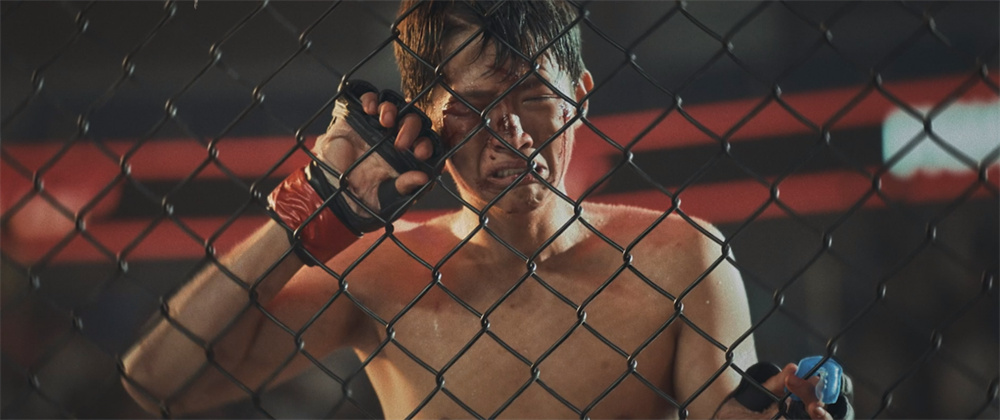
Movies have victories, but they are "unflammable"
The movie ended abruptly, and then there was a bright ending given by the subtitles. Everything is unspoken, and everything cannot be said too thoroughly. There is no cool narrative at the bottom. It seems to have won, but there are still too many people who lost. The film uses an anti-type and anti-climax narrative, which loses commercial emotional catharsis, ensures its true realism character, and also demonstrates Wang Baoqiang's profound humanistic care from the bottom. At this point, "In the Octagonal Cage" deserves a respect.
Since "life is like weeds", then "persistence" is the only choice. Even if it is so difficult to break out of the octagonal cage, even if the stones will eventually fall, but one step out is one step, and one win is one step. Even if the movie still has a lot of imperfections, I'd still like to see it win once.


